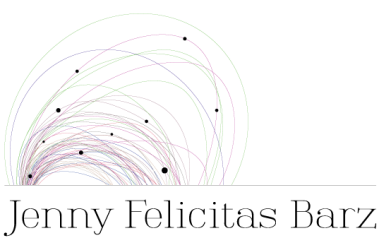Emotional flashbacks and Co-dependency - how trauma shows up in your life

When I was a teenager I often wondered why it was so easy for most people to stand up to bosses, partners, strangers and friends. They were able to say “No” without going into endless spirals of fear-stories in their head like I did.
I observed them having “their own back” and I wondered why I was so different from them.
Why did I keep falling for people and circumstances that would exploit me?
Why couldn’d I stand up to them no matter how much I wanted to?
Why did I keep abandoning myself?
Today I know:
I was under the influence of unconscious and unresolved trauma in the form of CPTSD (complex post-traumatic stress disorder).
No matter how hard I tried I couldn’t change this because will-power doesn’t touch the realm of trauma.
I was suffering from emotional flashbacks (I’ll explain in a minute) and I responded with co-dependency (people pleasing, manipulating etc.).
I had no control over this behaviour because I didn’t know about CPTSD or the consequences of trauma in any way.
I’ve never even heard of it before.
Trauma meant, so I thought, something far worse than having a critical mother and an absent father.
I believed that trauma is caused by a single event (which can be true).
But trauma can also be many “small”, painful but still overwhelming events chipping away at your sense of self and safety.
As a recovering co-dependent I owe much of my progress to Pete Walker, author of the Book “Complex PTSD”.
In it he writes: “emotional flashbacks are sudden and often prolonged regressions (‘amygdala hijackings’) to the frightening circumstances of childhood. They are typically experienced as intense and confusing episodes of fear and/or despair – or as sorrowful and/or enraged reactions to this fear and despair.”
He continues: “Because most emotional flashbacks do not have a visual or memory component to them, the triggered individual rarely realizes that she is re-experiencing a traumatic time from childhood.”
This was extremely eye-opening!
“The individual rarely realises that she is re-experiencing a traumatic time from childhood.”
How is that even possible?
Does this relate to the metaphor or the fish in the water? A fish swam by two other fish and asks: “how’s the water?” to which the two fish respond: “what water?”
The reality of it is, we don’t always have conscious access to the memories formed in childhood and at some level that’s a good thing.
It’s protecting us.
But it is also true that even though we’re not aware of these memories, our body stores them which means we re-expereince them countless times.
They become the water we swim in.
The anxiety, the depression, the fear and panic, the shame, the loneliness and the feeling of inadequacy, basically all the darkness that periodically returns to seemingly take us down – THEY ARE ALL EMOTIONAL FLASHBACKS.
In an emotional flashback “darker” states suddenly take over our whole perception of people and the world, isolating us and causing us to behave in ways we don’t want to.
Like not standing up tp people when we need to…
…and responding to events with expressions of co-dependency.
What is co-dependency?
“Co-dependency is defined here as the inability to express rights, needs and boundaries in relationship; it is a disorder of assertiveness that causes the individual to attract and accept exploitation, abuse and/or neglect.” (Pete Walker)
How exactly does co-dependency relate to emotional flashbacks?
We learned to respond to emotional flashbacks (danger) in different ways in our formative years.
Pete Walker describes 4 types that are described as the 4F’s in CPTSD:
Fight, Flight, Freeze and Fawn.
Even though we find ourselves responding in all of these ways when experiencing an emotional flashback, we can often identify one dominant response.
This response drives most of our behaviour when confronted with an emotional flashback.
I think it’s important to understand that not much conscious choice is involved in this. It’s default, unconscious and that’s where our inner work, therapy and other healing methods come in.
As I described earlier, I fall in the fawn category – co-dependency.
How does co-dependency form?
In formative years (between 18 mo. – 3 yrs.) children naturally develope protective assertiveness, characterised by the child’s urge to say “no” to everything they are told to do.
This natural opposition to caregivers is encouraging our healthy development IF it is met with acceptance and strengthened through compassionate communication with our caregivers.
In dysfunctional families however, instead of encouragement, we get shut down whenever we express anything but conformation.
We’re send to our room with messages like: “Don’t you dare say “no” to ME, don’t you dare oppose me, don’t you dare cry or get angry or else I’ll be so mad with you that I WILL leave you.”
When I was going through this stage of my development, I remember that I, too, was met with abandonment and rage from my mother.
I think she was afraid of my or any opposition for that matter (which isn’t an excuse but important to mention. She had her own unresolved issues).
In order to hold the bond with my mother and escape punishment, I had to abandon myself, my feelings and my natural assertiveness.
I had to say “yes” when I meant “no” AND act like I MEANT it.
No matter my state or opinion, I had to show unconditional positive regard towards my mother in order to please her (and not trigger her fear and rage).
In a functional familiy caretakers meet their children with space for healthy development. A space in which emotions like healthy anger are welcomed as a good sign of human expression.
Now, I know that this information might be very disturbing for many people because most people haven’t confronted their abuse in childhood – yet.
I mean, how dare we blame our parents, right?
But we have to.
Because denial of parental mistakes keeps us stuck in these emotional flashbacks.
It keeps us away from being able to grieve what we’ve never experienced as children (unconditional love) and claim more for ourselves in the future.
I know, it’s easy to deny your past, especially when the abuse wasn’t physical.
Emotional abuse is often swept under the rug because most of its methods are, sadly, still considered normal.
Only now are we beginning to call abuse by its name.
Not many years ago it was considered a necessary form of educating children to yell at them, criticise them and use silence treatment to shame their behaviour.
Children will make everything about them. They will think that something’s inherently wrong with them when parents punish them in such way: “Why is mommy mad with me? I must be so bad that she doesn’t want me, I am not welcome here.”.
They grow up with beliefs like these and KEEP them until they start realising that their beliefs stems from ill treatment in childhood and are NOT AT ALL TRUE!
In order to heal co-dependency and our emotional flashbacks, we must go inward and re-lease the pain our parents have caused.
I know, not at all an easy task.
But if we don’t do this, we will carry the same pain into relationships, jobs and self-regard which means that we’ll never feel safe with anyone or anywhere. Even unconsciously inflicting pain on to others.
We need to get informed about trauma or we continue to deal with serious consequences like illness, violence, enabling, suicide, depression etc. passing all of it on to our children.
We must come to terms with the pain of our past.
We need to be brave enough to admit that our childhood wasn’t perfect and our parents are not almighty gods but wrong about a lot of things, including their way of raising a child.
Refusing to see the wrong-doings of our parents isn’t virtuous and it will increase the shame in our body.
Ending transgenerational trauma starts with educating oneself, ADMITTING that somethings WAS wrong.
We must stop comparing ourselves to other families who were “worse” than our own.
If we continue comparing our pain and unmet needs to others we won’t get the chance to heal the pain we carry inside our own bodies.
I know that goes against everything we’ve learned.
Blaming our parents for the things we didn’t get?
“Forgive your parents, they did their best.” “Don’t carry hatred in your heart, it will keep you stuck.” “They carried you and fed you, you should be grateful” etc.
These statements are in service of the shame based world we live in.
It’s brave to grieve the things we never got to experience in childhood.
For me it is not optional to grieve these losses.
Grieving means I can move on with my life, unashamed of being myself.
Shedding all fantasies of my parents eventually loving me in a way I need and deserve it.
Pete Walker says: “Psychoeducation is therefore a fundamental first step in the process of helping clients understand and manage their flashbacks. Most of my clients experience noticeable relief when I explain PTSD to them. The diagnosis seems to reverberate deeply with their intuitive understanding of their suffering. When they understand that their sense of overwhelm initially arose as an instinctual response to truly traumatic circumstances, they begin to shed the awful belief that they are crazy, hopelessly oversensitive, and/or incurably defective.”
In short: these flashbacks feel like unmanageable feelings, completely overwhelming, yet, oddly familiar and they can be cured by understanding exactly what they are and where their origin lies: in the trauma of your childhood.
Walker says: “Flashback management therefore needs to be taught in the context of a safe relationship”
I’d say that means with a therapist or an enlightened, non-judgemental witness.
Knowing about all of this, of course, doesn’t simply “make” it go away. There is great inner work involved in order to heal co-dependency.
I know from experience that co-dependency is much like an addiction.
The most defining factor when it comes to addiction is that we have no control over it.
This is precisely why I am so passionate about educating in this particular matter.
Education and Inner work is the only combination that frees us from this style of relating (that many are proud of for whatever reason).
I owe a new life to Pete Walker and the few people in my life who were generous with their unconditional positive regard towards me.
I had to grieve a lot of my losses and I’m continuing to do so.
I’d say I’m carrying a much lighter load today.
The darkness doesn’t take me down anymore. I can hold my head above waters because I know these waters better than ever before.
I don’t lose myself in the shame-based identity and can admit to mistakes like a healthy human does.
I want everyone to have the chance to know about this so they can get to the root of things as well.
Yes, I am talking to you.
I want you to be free and able to move on with your life when you choose to.
The thing is, if you don’t heal trauma you CANNOT move on.
Not wholeheartedly at least.
I want for you to say “NO” with conviction.
I want you to BE and LOVE yourself unconditionally.
I want you to love and live safely.
I want you to feel incredible in your own skin.
I want you to follow your heart and purpose.
I want you to be successful with who you truly are.
It’s not easy, I know. I glad you’re here and I acknowledge you for reading this far.
We’re in this together.
If you want support in your recovery process contact me here or get the details to my 1:1 coaching package here.
Otherwise good luck and much love to you, beautiful,
Jen


